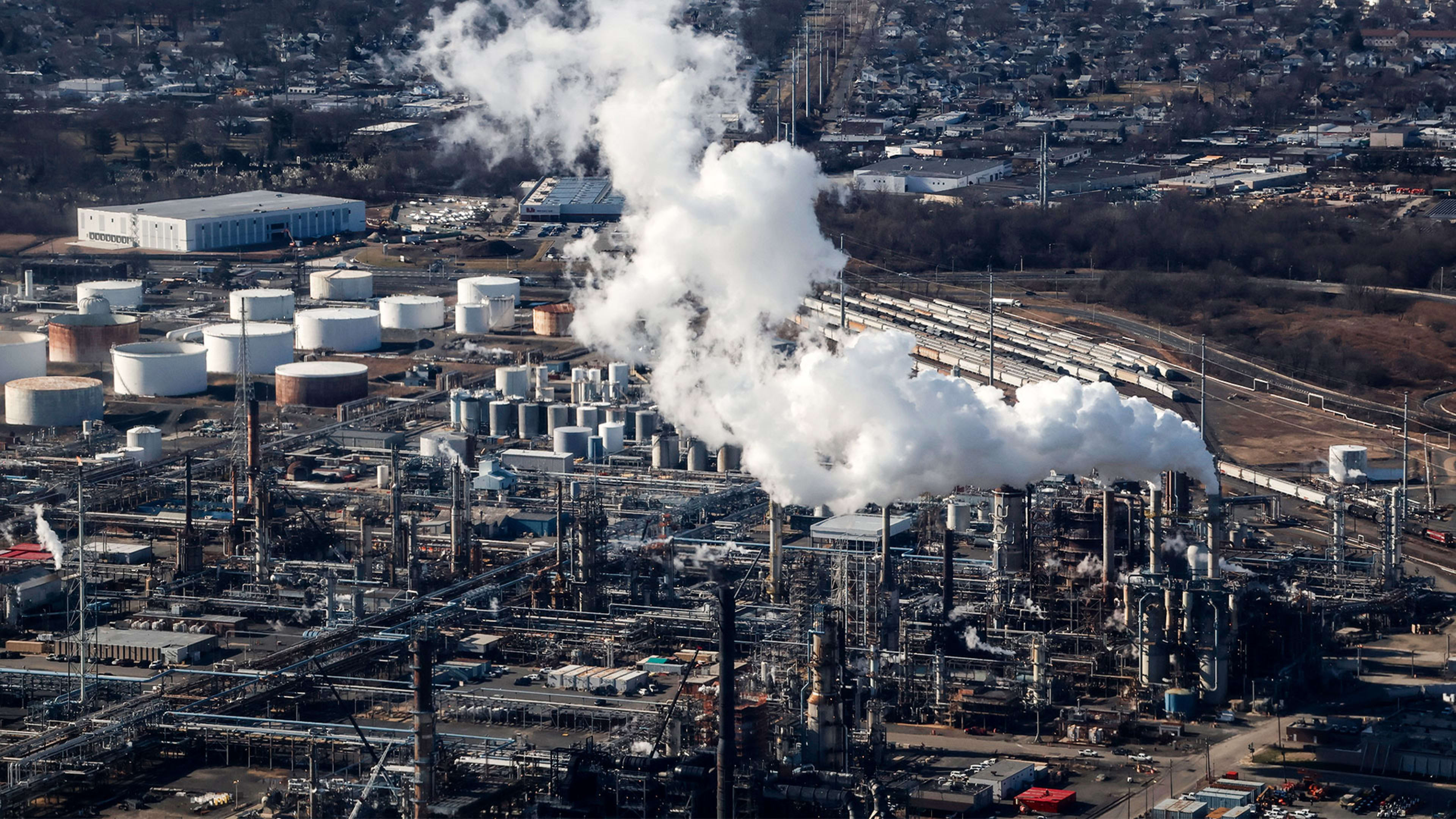It might not sound like Biden’s America, either in Republicans’ telling or the president’s own, but the United States remains the undisputed global leader in oil production.
On Monday, the U.S. Energy Information Administration (EIA), an obscure Energy Department subagency, released new figures showing that we the people of the United States now produce more crude oil than any nation has in human history. (That’s actually how the EIA puts it—“more crude oil than any nation at any time,” as well as “more crude oil than any country, ever.”)
The figures, part of the office’s International Energy Statistics, include two of particular note: Domestic production cleared 12.9 million barrels per day in 2023, breaking the previous global record of 12.3 million per day, set back in 2019 (also by America). And a new monthly production record was reached in December, when some 13.3 million barrels per day were cranked out in that one month.
Going back to 2008, at the tail end of the George W. Bush years, U.S. production bottomed out at a 62-year low point of 4.95 million barrels per day. Oil’s resurgence has surprised even industry experts. That also likely holds true for political opponents, such as Iowa Republican Senator Chuck Grassley, who five days ago posted on X, “Welcome 2Pres Biden’s America where the fed govt chooses energy dependence over energy DOMINANCE AND INDEPENDENCE.”
And ditto average Americans, who may recall President Biden running on pledges to “transition” away from oil and refocus on renewable energy, and has since vowed to end U.S. financial support for international fossil fuel projects. In September, Biden’s Interior Department unveiled a plan for the fewest offshore oil-drilling projects since 1980, when the government began publishing these as part of a forward-looking five-year plan—his administration okayed just three, all in the Gulf of Mexico. One big reason, according to the EIA, is that despite a 69% shrink in active rigs nationwide over the past decade, technological advancements have improved oil production.
These strides mean the chances that a global competitor will outpace America’s record-level production is low, the EIA predicted. In fact, its math for 2023 logged worldwide production at 81.7 million barrels per day. That puts about 16% of the total amount in America’s hands. The next closest producer, Russia, was responsible for slightly over 12% of global output, while Saudi Arabia ranked third with just under 12%. The next three nations in line—Canada, Iraq, China—produced a combined 13.1 million barrels per day, barely more than the U.S. produced alone.
“The crude oil production record in the United States in 2023 is unlikely to be broken in any other country in the near term because no other country has reached production capacity of 13.0 million b/d,” the EIA wrote, noting that America’s line is actually trending in the opposite direction of much of the rest of the world’s. “Saudi Arabia’s state-owned Saudi Aramco,” the agency added for context, “recently scrapped plans to increase production capacity to 13.0 million b/d by 2027,” on grounds that it’s moving toward green energy.
Biden’s crosswise oil policies are a confusing juxtaposition that has proven uniquely capable of simultaneously irking both the big oil companies and environmentalists. But Biden’s own EIA claims America’s oil rush doesn’t necessarily show signs of cooling off that much. It’s written elsewhere that U.S. production is likely to rise to 13.2 million barrels per day for 2024, then to 13.5 million by 2025. Meanwhile, it believes production by the OPEC countries (Saudi Arabia, Iraq, Iran, the UAE, plus eight other major oil producers) will remain flat, leaving the U.S. next to Canada, Brazil, and Guyana—South America’s third-smallest country—as the new block of nations pushing the oil production growth-rate higher worldwide.
Recognize your brand’s excellence by applying to this year’s Brands That Matter Awards before the early-rate deadline, May 3.
